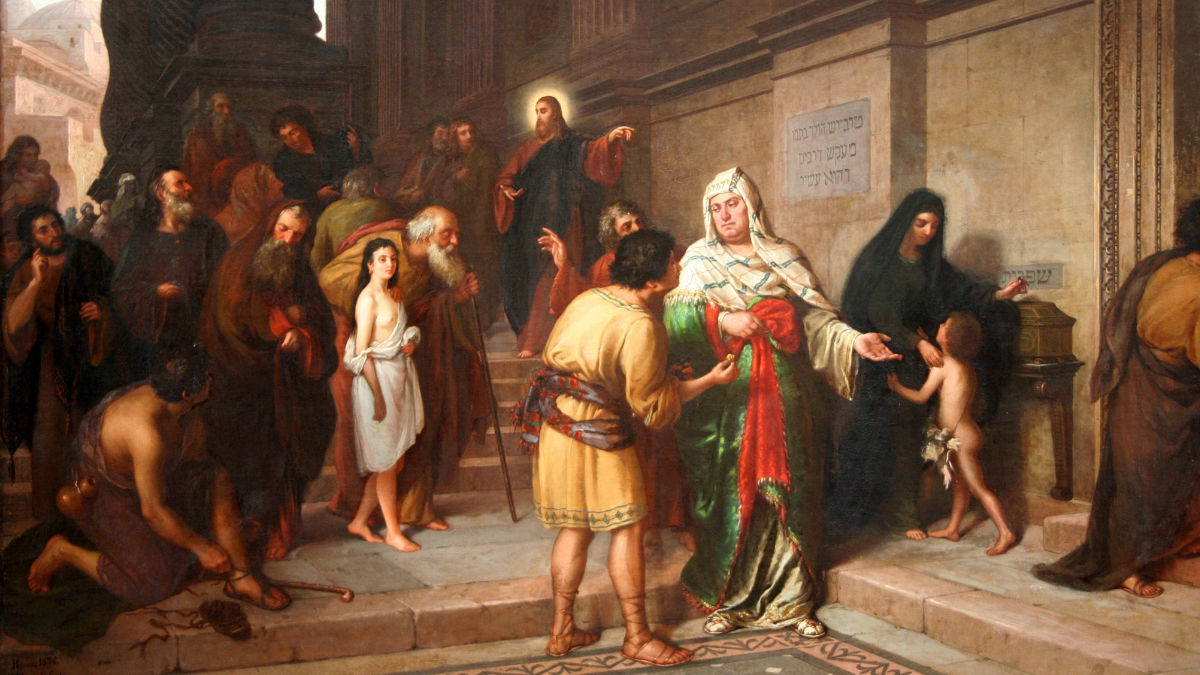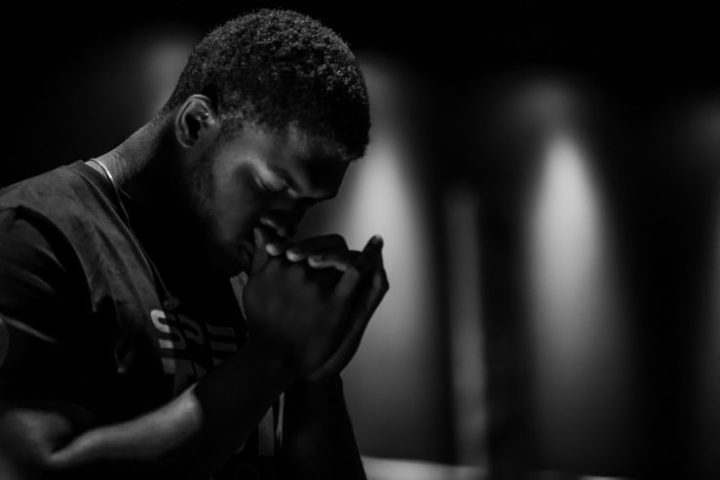
He looked up and saw the rich putting their gifts into the treasury; and he saw a poor widow put in two copper coins. And he said, “Truly I tell you, this poor widow has put in more than all of them; for they all contributed out of their abundance, but she out of her poverty put in all the living that she had.”
– Luke 21: 1-4
No one wants to read another reflection on tithing. Thankfully, this is not going to be one.
This Gospel story of the poor widow is really about obedience, faith, and an understanding of how things work in the Kingdom of God.
It is not surprising that Jesus knows the circumstances of the woman. After all, He knows everything about each and every one of us. Something we should continually keep in mind; (it would save us a good deal of heartache).
Jesus is aware this woman is poor, something He might easily discern from the clothes she is wearing. Jesus also knows the significance of her two small coins. He knows they represent a much larger percentage of her wellbeing than is true for those with wealth.
But most interesting, Jesus knows and points out she is a widow; she is alone in the world.
In the Old Testament, the care of widows is a recurring theme, as widows represent the perpetual symbol of the poor and the dependent. The Israelites were urged to show mercy to them, as God Himself would do. Since Jesus sees fit to point her out to His listeners, it is important to analyze what this woman is doing, and why.
As for her offering, the woman is merely fulfilling an obligation. Like all of us, she is required to make a tithe to the Lord from whatever she has (No, this reflection is still not about tithing). Her donation goes for the maintenance of the Temple, and this is done through the treasury. However, her contribution appears to be particularly generous. She is literally offering her livelihood, the very necessities of her life.
Second, the woman is acting in faith. Beyond the mere fulfillment of an obligation, she is choosing to honor God by placing her complete trust in Him and His providence. We might wonder why she would not hold back one of the two coins, simply as a matter of prudence. But she chooses instead to place her hope in God’s willingness to provide what she needs – when she needs it.
Finally, this poor widow appears to understand the inner workings of the Kingdom of God in a way few people do, certainly more than the wealthy contributors who only gave of their surplus. She understands that everything is a gift from God; all she possesses is simply on loan to her.
To be clear, the widow is not hedging her bet. She is not “planting a seed” in expectation of a larger return on her financial investment. That sort of thinking is a rather modern phenomenon associated with a distortion of the Gospel. It did not exist in Jesus’ time.
This woman of faith is simply acknowledging her complete and total dependence on God. Her genius is that she fully understands her condition before God in a way few people do. She needs God’s assistance… But then who of us does not?
In the modern world, we have an entire industry focused on assisting individuals in preparing for their financial future. The exclusive focus of this hugely lucrative industry is to help people secure and set aside a sufficient amount of money to allow them to enjoy their later years.
There is nothing wrong with prudent planning, and we all have responsibilities and obligations we must meet in our lives. The question is whether we understand the true source of our future security and our total dependence on that source. Of course, this is not just about money. (Told you it was not about tithing).
In our lives, we all wrestle with the issues of financial security, health, and a host of other issues that affect our wellbeing. We do well to wrestle with these challenges in prayer.
However, the guiding principle to keep in mind is that the Lord already knows our entire situation. He knows the details of our lives better than we do, and He is in charge of them.
Do not be like them, for your Father knows what you need before you ask him.
– Matthew 6:8
The widow understands this, and she is comfortable fulfilling her obligation in faith and placing her future in the hands of her Heavenly Father.
Hence, Jesus offers this poor widow’s actions as a model of obedience and faith. And, through her example, He teaches us about the importance of storing our treasures where they can serve to guide us to our eternal destiny.
“Do not lay up for yourselves treasures on earth, where moth and rust consume and where thieves break in and steal, but lay up for yourselves treasures in heaven, where neither moth nor rust consumes and where thieves do not break in and steal.
– Matthew 6:19-20
As is always the case with Jesus, it comes down to a question of the heart.
For where your treasure is, there will your heart be also.
– Matthew 6:21
This week, let us pray for the grace to acknowledge our total dependence on God, and that we come to experience the consolation of that reality.
God Bless
Article Copyright © Deacon Mark Danis
Image credit: “Widow’s Mite” | João Zeferino da Costa, Public domain, via Wikimedia Commons
Please help spread the Gospel. Share this article with family and friends on Facebook and other social media.
We need your support…
Can you give as little as $10 a month to support great Catholic content? We strive to operate on a very small budget, but we need your help. Both one-time and monthly donations are welcome. Just $10 a month will help cover the cost of operating Integrated Catholic Life for one day! Please help us bring enriching and inspiring Catholic content to readers around the world by giving today. Thank you!




